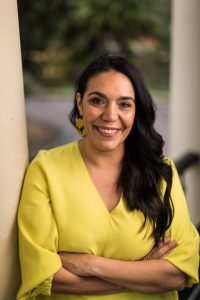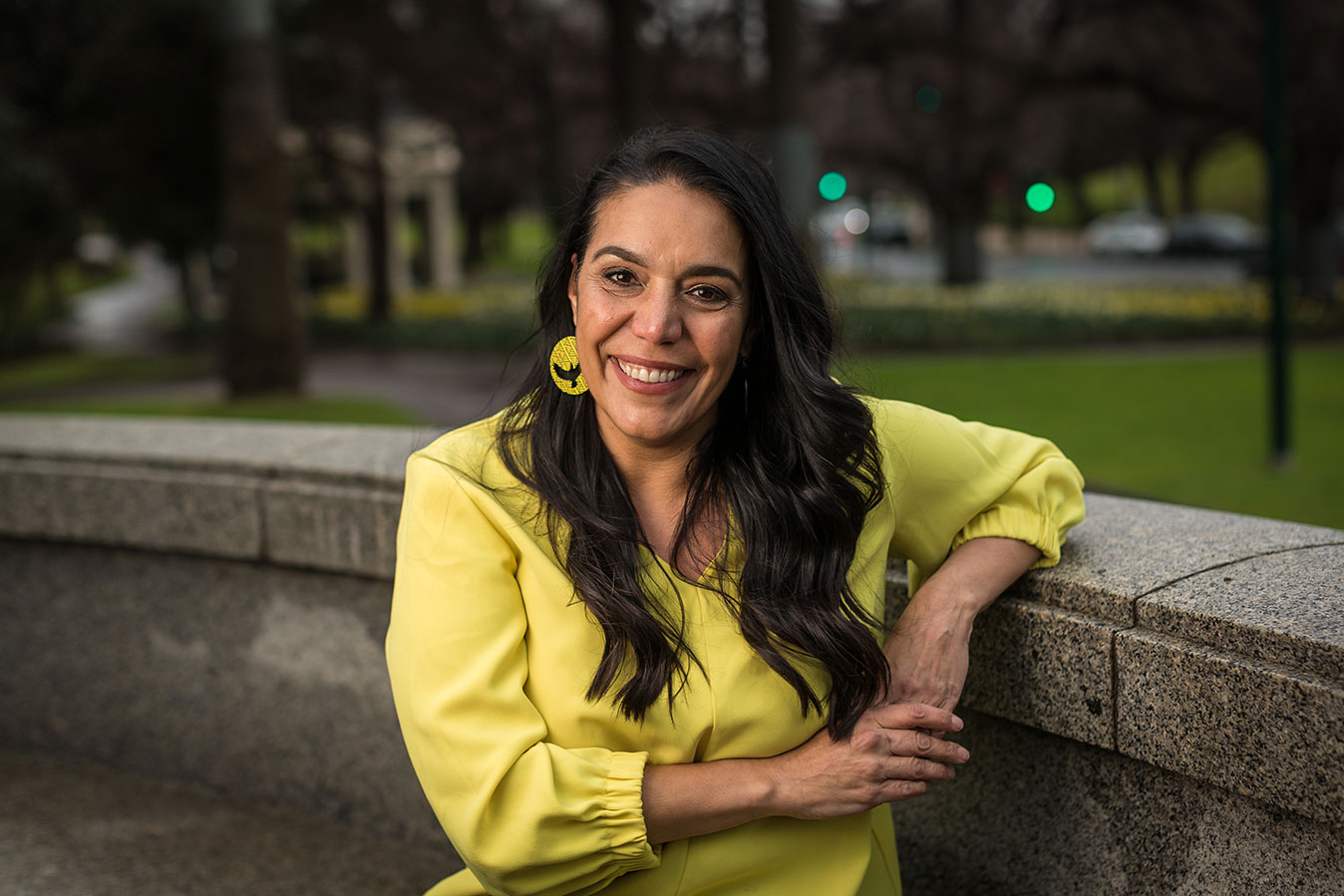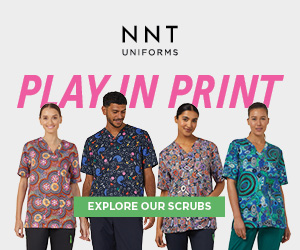Aboriginal health leader Janine Mohamed has devoted her career to expanding the Indigenous health workforce, especially nurses and midwives, championing culturally safe healthcare, and dismantling systemic racism.
Earlier this month, the CEO of the Lowitja Institute, Australia’s sole Aboriginal and Torres Strait Islander community controlled health research organisation, was named Victoria’s 2024 Australian of the Year.
Speaking to the ANMJ, Dr Mohamed, a Narrunga Kaurna woman from South Australia who began her career as a nurse, described receiving the honour as both humbling and exciting, adding that the newfound platform would enable her to continue advocating for health system transformation and fighting racism.
“Aboriginal people have asked for a long time for the eradication of racism and for the rest of Australia to understand what it looks like, feels like and what it produces,” says Dr Mohamed.
“Cultural safety is one of the antidotes to that.”
Before Lowitja, Dr Mohamed led the Congress of Aboriginal and Torres Strait Islander Nurses and Midwives (CATSINaM), where she oversaw the development and implementation of important projects such as cultural safety education and Birthing on Country services.
After pivoting nearly five years ago, Dr Mohamed says a lot of her work from CATSINaM carried over and has included efforts to embed cultural safety into university education, as well as nursing and midwifery standards. Other projects have involved research investigating issues like preventable Indigenous deaths, providing scholarships for Indigenous health research, and a current focus on climate change, including a push to establish a coalition for climate and health for Aboriginal and Torres Strait Islander people.
“When I walked in [to Lowitja] we were giving lots of research grants out to universities and lots of teams, but the teams weren’t necessarily always made up of Aboriginal Torres Strait Islander people,” Dr Mohamed explains.
“What we’ve been able to do [since] is ensure that 100% of our grants go to the Aboriginal community controlled sector, and 100% Aboriginal Torres Strait Islander chief [research] investigators. That’s been quite impactful in that we’re giving people their first opportunity to lead a research grant, Indigenous people, and they’re employing other Indigenous people, which has an economic impact, as well as giving our people an opportunity to try out research as a career pathway.”

Like other peak Indigenous organisations, the Lowitja Institute this year supported the establishment of constitutionally enshrined Voice to Parliament, arguing that the first reform called for in the Uluru Statement from the Heart would provide a strong foundation for the urgent work needed to improve health and wellbeing outcomes for Aboriginal and Torres Strait Islander peoples. While the result understandably left ‘Yes’ campaigners deflated, Dr Mohamed prefers to focus on the 36% of Australians who supported the cause, labelling them “a huge footprint of allies” that can be activated.
“Without bipartisan support, we had a lot of lies out there,” Dr Mohamed reflects.
“Not the least, was that Aboriginal people didn’t want [The Voice] this. The washup has shown us that where there’s Aboriginal communities, 80% of Aboriginal people in those communities voted ‘Yes’. And that was what we, as Indigenous leaders, were saying. But of course, that was drowned out by rhetoric such as ‘If you don’t know, vote no’.
“My forward comment is, if you don’t know, you should know. I think it’s a civic responsibility, living on First Nations country with the world’s oldest living culture, that we should know the history here, and how we can make a brighter future together.”
According to Dr Mohamed, many Aboriginal people remain in a period of grief following the referendum loss. The next steps should involve greater focus on historical truth-telling, she believes.
“I think that was potentially missing in the lead up to the campaign,” Dr Mohamed says.
“It’s only made me more passionate about the process of cultural safety, which of course, includes historical truth-telling and understanding systemic racism. Who built the system? Who was locked out of the system? And who benefits from the system? Historical truth-telling is going to be really important for future generations.”
Reflecting on her nursing and health leadership journey, Dr Mohamed paid tribute to the formative experiences she had working as a nurse, navigating the system, and the many people along the way that paved the way for her to thrive.
As Victoria’s 2024 Australian of the Year recipient, she will now represent the state for national Australian of the Year honours, set to be announced on 25 January.
Dr Mohamed taking out the prestigious gong would be rather fitting, given that the Lowitja Institute’s patron, Dr Lowitja O’Donoghue, was named Australian of the Year in 1984, exactly 40 years ago in 2024.
“I’m a nurse from Adelaide and I’m running an institute named after an Aboriginal woman from Adelaide who was a nurse, and it will be 40 years ago since she received the honour as Australian of the Year,” Dr Mohamed contemplates.
“That would be quite an emotional connection for me [if I won].”








